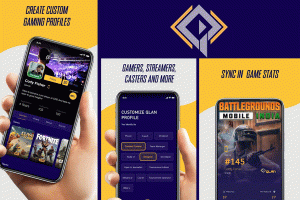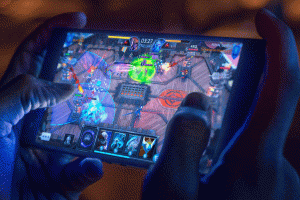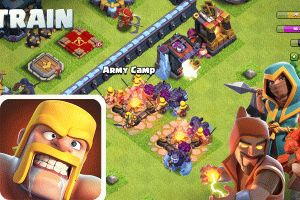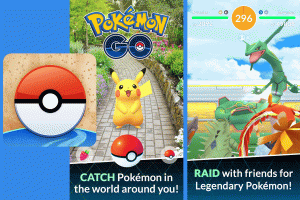In today’s digital age dominated by smartphones, gaming has become all the more immersive, engaging and a viable way of networking and community building, and with connectivity in-home and on the go, players stay connected to their games and their friends regardless of time and location. The soaring innovations have given way for players to uncover more realistic and fully immersive simulations on screens, and with online socio-gaming now setting benchmarks, the world is still only learning just how influential gaming really is.
Multiple sectors, including the field of social media, have been revolutionized by gaming and esports’ rapid growth around the world. The esports’ communal nature has seen social media sites as an important feature in which sports fans gather online and witness competition excitement.
TV was once the go-to option among vast swathes of the population to influence brand perception – now, esports is taking the mantle as the medium that can influence many millions of people quickly. In the pandemic lockdown across the world that forced isolation and social distancing, streaming sites such as Twitch, YouTube and Facebook Gaming saw huge growth in 2020. A new balance of influence in sports media is unveiled by the streaming industry, providing a sense of community and interactivity across boundaries that conventional sports might have lacked in the past. In today’s digital age, gaming is all the more immersive, engaging and a viable way of networking and community building.
Interactive gameplays
The digital media platform created by esports has opened up opportunities for the entire sports industry to develop deeper fan connections. We shifted very quickly from enjoying an esports experience larger than life in large stadiums across India to replicating the same virtual stadium experience that was only possible because of technology. Also, with a multitude of OTT platforms now being the standard in India, any household located in any part of the country that has strong digital connectivity can now enjoy esports. Players, their teams, coaches and the audience are all digitally linked. A comment window helps players to interact with each other and the streamer, bringing together the video gaming community.
Video games are the new social media of these millennial. Contrary to the common belief, these video gamers are very social but where do they socialize? They socialize in the video games, platforms like Discord, Live streams, esports platforms. These video games have inbuilt capabilities where you can do text and voice calls with other players. For easy understanding, communication platforms like Discord are an advanced version of your Zoom or Google meet; they follow their favourite streamers and communicate with each other and the streamer on live streams (you can live stream your game play on platforms like YouTube, Facebook Gaming etc.) and connect with other esports athletes on platforms like Ultimate Battle, Gamerji, Ewars, Ustreak etc., where you can host your own esports events and compete in esports tournaments.
A new platform to catch up
Adding an edge to the esports segment, Qlan, an interactive social networking app dedicated for gamers, announced their successful launch on Google Play Store few months back. The exclusive platform presents a whole new approach to connect and engage with the gaming and esports community with a vision of creating a robust and sustainable ecosystem. The exclusive platform is developed for gamers, gaming professionals, squads, orgs, tournament organizers, content creators and other stakeholders in the industry to build, find and exchange value to further their growth.
It is a genre-specific one stop networking app with some of the key features like:
- Create custom solo, squad & org profiles
- Showcase gaming skills by syncing in-game statistics
- Share gaming and esports content with an option to monetise early
- Promote esports tournaments, brands and IPs to a targeted audience
- Access AI-enabled gamer matchmaking for verified connections
This AI-based networking app offers the stakeholders in the business and the thriving esports community to meet, communicate and get discovered. Providing optimum opportunities to new prospects while augmenting the industry further. Qlan envisions becoming the most trusted and secured platform for the gaming and esports community.
“It is a surreal feeling to successfully launch Qlan. Gaming and esports is our passion and we understand the massive potential that this segment has. While in the existing social setup, gamers and the esports ecosystem were unable to address various issues like making the right connections, proper recognition for their in-game talent, a structured system for players and skilled individuals to showcase their skills, creating and sharing content in one designated gaming only platform. The idea is to unite the existing fragmented communities and facilitate value exchange amongst them. These lacunas in the existing social system obstructed the right talent from getting tapped. And that is what prompted Qlan’s inception, it will address existing grassroot problems that the gaming ecosystem has been facing in the social space all this while,” Sagar Nair, Co-founder and CEO of Qlan said after the launch of the app.
Socially immersive experience
As the younger set have largely moved away from the platform to more eye-catching and smartphone-savvy platforms like Snapchat, Instagram and TikTok, many of the popular games of years gone by have faded into memory. However, that doesn’t mean that the new generation of phone-obsessed younger millennials and Gen Z kids has given up on online gaming. Talk to any 12 years old and you’re bound to find out tons of information about their Fortnite character skin, their Minecraft dungeon, or their Animal Crossing town, and that’s not to say that these viral games are restricted to adolescents; tons of adults regularly enjoy gaming with games like the ones mentioned.
In today’s digital age, gaming is all the more immersive, engaging and a viable way of networking and community building and with connectivity in-home and on the go, players stay connected to their games and their friends regardless of time and location. The soaring innovations have given way for players to uncover more realistic and fully immersive simulations on screens and lenses, and with online socio-gaming now setting benchmarks, the world is still only learning just how influential gaming really is.
Fostering online communications and engagement, a lot of the existing apps focus on connecting strangers and providing them with an opportunity to socialise; a platform to connect, hear and be heard all the while battling. With socially immersive and interactive gameplays, the virtual world gives gamers brand new and a diverse community to engage, making it a much fuller and more meaningful interactive internet marketplace. Social media having fallen to the wayside, online gaming companies now have monopolized social media group interaction. From giant triple-A titles to crowdfunded indie games all have communities much stronger and deeper, creating movements even beyond the gaming world.
Rewarding and remunerative
The rapid spread of digital platforms, the massive phenomenon of streaming, the growing popularity and accelerated rise of esports, have reinvented the gaming landscapes, and with new game genres emerging every now and then, new monetisation models are forthcoming.
India being a talent hub, along with the spike in digital adoption during the pandemic, and availability of cheaper, faster and better internet quality, Indians have access to better games now than ever. With over 350 million user base, increased time spent and monetisation, mobile gaming is said to triple to a $5 billion market opportunity by 2025, and with metaverse now taking the world by storm, a crossover of the same would downright be sheer ethereal experience.
Video games are competitive, social and lead to amazing financial opportunities for people who can make it professionally. The truly exciting thing about the industry itself is that it’s starting to have real impacts on other parts of the market, especially when it comes to retail. Even with platforms like Netflix, Disney+ and Amazon thriving, in many ways, they just can’t keep up with major video games like Fortnite. People are drawn to so many things that we’ve always appreciated about video games — the fun, the excitement, the thrill of a new game. However, with the development of video game platforms, people can also connect with each other in a way they have never been able to before. Imagine a reach as large as Netflix or Disney, a communication scale as big as Facebook or TikTok and engagement like the best console games. That is the promise of the esports platforms.
Build your own community
Streaming has, without doubt, had one of the most significant impacts on the way people engage with video games. Streaming is far more accessible than traditional broadcasting methods and typically involves watching other people play video games while providing commentary.
For traditional broadcasting audiences, the whole idea can sometimes seem a bit strange. Many wonder why you would want to watch someone else play instead of playing yourself.
Streaming platforms empower any individual to create their own communities, with sociable chat rooms that capture interesting game moments which the audience can share in viewing. Streaming platforms are undoubtedly a new form of social media. It isn’t just about playing the games for the streamers but building a community of like-minded fans.
It’s almost like gaming alongside social networking. Online media platforms gamers use are some of the most populated and engaged online communities in the world.
Streaming is undoubtedly newer than online gaming and has become a lot more popular in the last five to ten years as live game streaming technology has improved. Social media platforms quickly moved to implement their own streaming services, such as on Facebook and YouTube.
Bright future ahead
It appears that the sky is the limit as far as the development of the gaming industry goes. Amazon has already mentioned its interest in developing an Amazon Games feature as a way to be part of this ever-expanding gaming industry, adding to its acquisition of Twitch several years ago. As the world starts to notice just how influential gaming is, it is just as critical to let go of those outdated beliefs that gamers are a forgotten group of people. They are the people who are bringing together gaming and social connectedness in a way that we’ve never seen before.
Social mobile games, for instance
Among Us
Despite the game’s 2018 release, Innersloth’s Among Us experienced a meteoric rise in popularity in 2020 – becoming one of the most played online games in the world. The game takes place on a spaceship where a user (or several users) takes the role of an imposter who will eliminate the crew. It is up to the rest of the team to determine who they can trust, ejecting teammates based on their suspicious in-game activities. Gamers can play together online or over local WiFi with 4-15 players in each round. Among Us is a social game where the imposter can use mind games to mislead other users. The ability to deceive users — while other gamers must complete tasks while performing detective work — has been critical to the game’s popularity.
Clash of Clans
Clash of Clans is a mobile strategy game by Supercell. Gamers are tasked with defending their village and planning their attack on enemy clans. The game offers a single-player experience and multiplayer tournament modes. Clash of Clans’ social features can be found in Clan Wars. This is a matchmaking system that places users in matches with clans of similar strength and size. In 2019, Clash of Clans contributed to 42% of Supercell’s total revenue as players spent over $722 million on the free-to-play mobile game.
PPPoker
Launched in 2016, PPPoker is one of the world’s most popular private club-based poker platforms. Users can create their own private poker club with PPPoker and play with the other gamers in their network. Players can also enter tournaments and try their hand against other gamers around the world.
Pokémon Go
Pokémon Go was created by Niantic, Nintendo and The Pokémon Company. The franchise game uses augmented reality to let gamers catch Pokémon in their real-world surroundings. In 2018, Forbes declared Pokémon Go the world’s most important game. Upon release, the game was the fastest mobile game to earn $100 million and achieved more downloads than any other in its first month. Pokémon Go players can also trade in-app purchases, gifts and Pokémon they have caught with their friends, recreating a key feature from the franchise’s other popular games.
Courtesy: ADJUST










